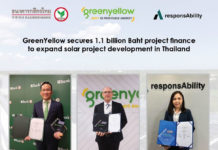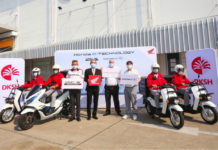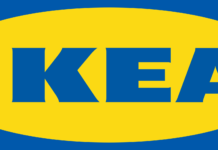Stock Exchange set to reap AEC rewards
The Stock Exchange of Thailand (SET) has been busily preparing itself for the advent of the Asean Economic Community (AEC) both in terms of expansion at home and positioning itself to become the leading bourse for what is known as the Greater Mekong Subregion (GMS).
In 2014 the SET became the leading bourse in Asean in some areas. It topped the highest daily trading value at 44.5 billion baht for the third successive year, added the largest net additional shares in the MSCI Global Standard Indices with three new stocks, and the highest number of stocks added to the Dow Jones Sustainability Index, with 10 new listings.
Corporate governance has always been a potentially undermining issue but Thai listed companies topped the Asean Corporate Governance (CG) scorecard and the SET governors are well aware that increased corporate governance will only help boost investor confidence, especially as Thailand seeks to attract serious foreign investors.
In order to better prepare for the start of the AEC, the SET governors intend to implement four main strategies.
The first of these is improving product and service quality. During the rest of this year the SET is looking to increase market capitalization from initial public offerings (IPOs) across a wide range of industries from transport and logistics, tourism, alternative energy and food and agriculture. As well, it hopes to add foreign listings especially from companies in the GMS region (Laos, Myanmar, Vietnam and China’s southern provinces).
The aim is for 250 billion baht in market capitalization from IPOs and 130 billion baht from the recapitalization of listed companies.
The second strategy is aimed at increasing the trading liquidity of the SET, with the plan to see it trading at 52 billion baht per day. Much of this will require improving knowledge amongst investors to give them the confidence to engage in increased levels of trading.
The third strategy involves increasing diversification and internationalizing products and services. The SET plans to offer US dollar-denominated products for stocks and derivatives. This is based on the demand for such products within the Thai marketplace as well as from foreign investors.
The fourth and final strategy is aimed at enhancing infrastructure funds to meet future fundraising requirements. The SET will introduce clearing services for equities and expand digital listing services to cover all products. It aims to improve the online information systems of listed companies and also aims to reduce the settlement processes from three working days to two.
The SET is consolidating the Thailand Futures Exchange (TFEX) with the Agricultural Futures Exchange of Thailand so that it can offer a broader range of derivatives trading in the one place. Rubber is expected to be the first agricultural derivative to be traded on this new and improved TFEX.
Of course, despite the upgrades and the improvements the overall health of the Thai stock market remains tied to the general Thai economy as well what is happening across the global marketplace.
The poor export market and a weakening China has led analysts to suggest the SET will only go so far before it meets what is called ‘resistance’. Even so, the sectors most analysts are still recommending are construction, buildings and materials, which should benefit from government spending while transport and aviation should benefit from lower oil prices.
While the SET management continues to work at improving the efficiencies within its system, there are plenty of SET-listed companies expanding into the Southeast Asian regional marketplace ahead of the start of the AEC.










